Low Helix Piercing -
Complete Guide to Pain,
Healing & Jewelry
Ear piercings have always been a way to combine fashion with self-expression.
Over the past decade, cartilage piercings have evolved into a full-fledged art form, with each area of the ear offering unique possibilities for design. The low helix piercing is one of the subtler yet stylish choices. It sits near the bottom rim of the ear, just above the lobe, making it accessible, versatile, and easier to combine with other piercings compared to some of the more complex cartilage placements.
Because of its location, the low helix often appeals to those who want to step beyond simple lobe piercings without committing to something too bold or dramatic. It offers the elegance of cartilage jewelry while remaining understated. Whether you prefer minimalist studs, delicate hoops, or sparkling stones, this piercing can be adapted to virtually any personal style.
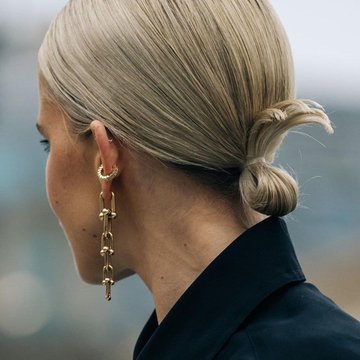

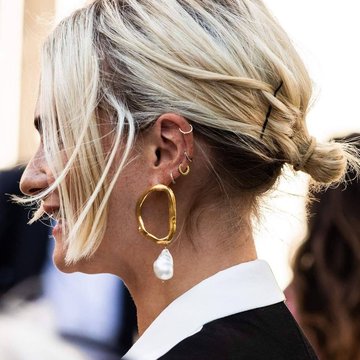
What is
a Low Helix Piercing?
The low helix ear piercing is essentially a cartilage modification placed near the ear’s lower rim, slightly above the earlobe.
This position creates a natural flow between traditional lobe earrings and the upper cartilage, making it a perfect “transition” piercing. It balances well with existing jewelry and is often included in curated ear projects.
An interesting variation is the low forward helix piercing, which sits closer to the face along the front of the ear. This subtle shift in location changes the overall look dramatically, giving a more facially framed appearance. It’s a favorite for those who want something discreet but visually striking when hair is tucked back.
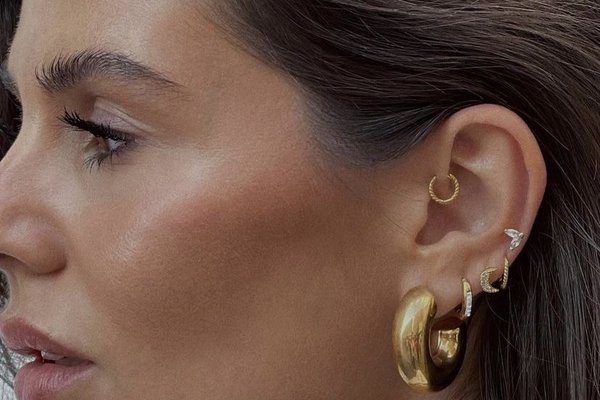

Variations of
Low Helix Piercing
There are multiple approaches to styling this area, depending on anatomy and desired effect:
- Double low helix piercing - two piercings side by side or stacked vertically for symmetry.
- A line of jewelry connecting lobes with cartilage for a flowing effect.
- Part of a curated ear, combined with tragus, rook, or upper helix piercings.
- Hoops that hug the rim for a continuous decorative line.
- Studs or gemstones for minimal, elegant detailing.
In general, the ear piercing low helix works as both a standalone accent and as part of a larger composition. Its discreet location makes it flexible enough to suit professional, casual, or creative lifestyles.
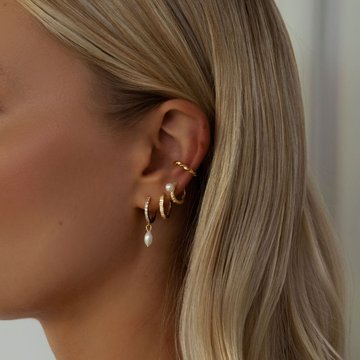


Jewelry Inspiration
The jewelry chosen for the lower helix piercing plays a major role in its final appearance.
Here are some common directions:
- Minimalism - tiny flat-back studs, matte titanium, or steel discs for comfort.
- Luxury - diamond or crystal tops for a refined, high-end aesthetic.
- Playfulness - themed shapes like stars, moons, or hearts.
- Classic - simple hoops that connect seamlessly with lobe piercings.
- Contrast - mixing gold and silver or combining hoops with studs for depth.
Because the lower rim is easily accessible, switching jewelry after the healing period is much easier than with deeper cartilage piercings such as rook or daith. This makes it attractive for those who enjoy experimenting with different looks.
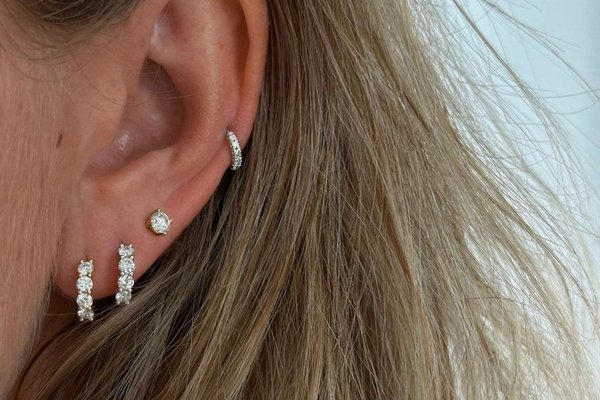
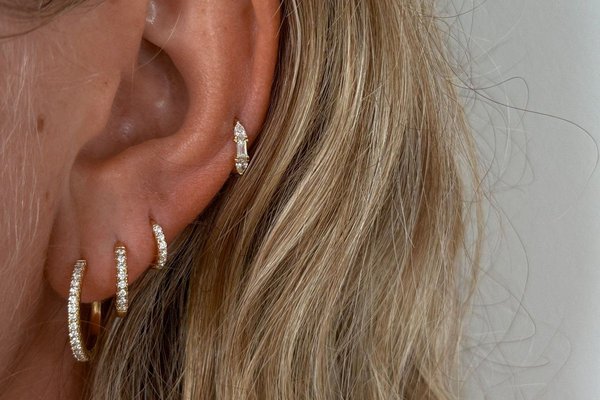
Pain and Experience
One of the most common questions is about the low helix piercing pain.
The lower cartilage is thinner than the upper helix, so the sensation is often milder. Most clients describe it as a sharp pinch lasting only a moment, followed by tenderness for several days. On a pain scale of 1-10, many rate it around 3-5, depending on sensitivity.
The main challenge is avoiding pressure during sleep. Because of its location, it is tempting to rest on the pierced side, but this should be avoided until the tissue stabilizes. Using a travel pillow or ear pillow with a hole can make the process easier.
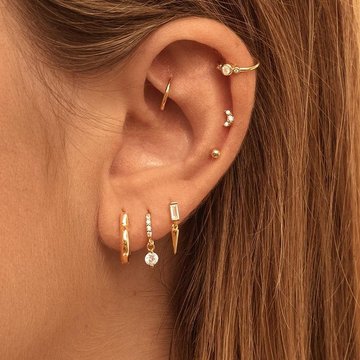
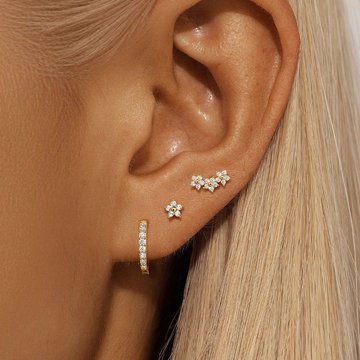
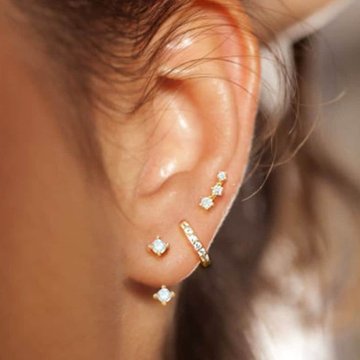
Healing and Aftercare
Healing cartilage takes more time than healing lobes.
The average low helix piercing healing time is 4-6 months, though some people may need up to 9 months for full stabilization. Unlike soft tissue, cartilage has less blood circulation, so patience is essential.
Aftercare guidelines:
- Clean the piercing with sterile saline twice daily.
- Avoid twisting or rotating jewelry.
- Keep the area free from hairsprays, makeup, or skincare products.
- Do not sleep directly on the piercing.
- Return to the piercer for jewelry downsizing once swelling subsides.
It’s important to understand that a piercing may look healed on the outside but still be sensitive inside. Rushing to change jewelry too soon is one of the most common mistakes.

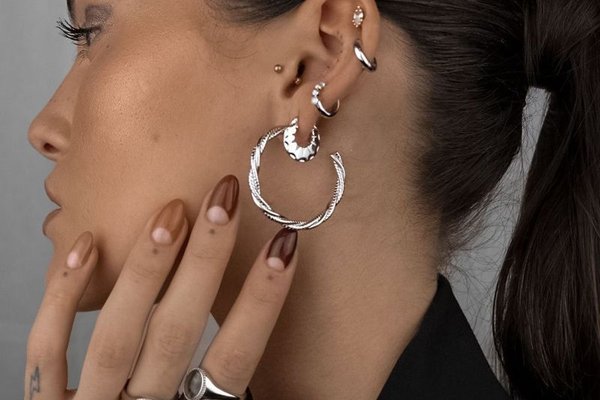
Common Mistakes to Avoid
Many clients unintentionally slow down their healing by making small errors.
Here are pitfalls to avoid:
- Touching the piercing with unwashed hands.
- Using alcohol or hydrogen peroxide (these dry the tissue).
- Wearing heavy or dangling jewelry before the piercing is fully healed.
- Sleeping on the pierced side too early.
- Ignoring irritation bumps or prolonged swelling instead of seeking advice.
By avoiding these habits, you give your piercing the best chance to heal smoothly.
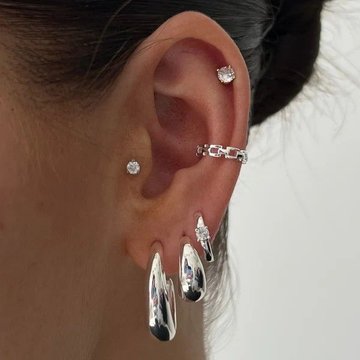
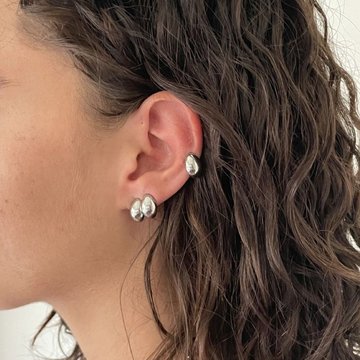
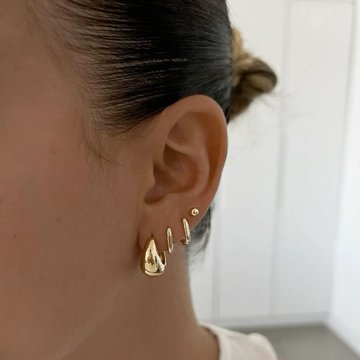
Price Considerations
The cost of a low helix piercing depends on the studio, piercer’s experience, and jewelry selection.
Basic surgical steel may keep the price modest, while implant-grade titanium or gold jewelry raises it. Many clients find the extra investment worthwhile for safety and comfort.
If you’re planning a double low helix piercing, some studios may offer package deals, which can make it more affordable compared to booking them separately. Always prioritize hygiene and professional standards over low pricing.
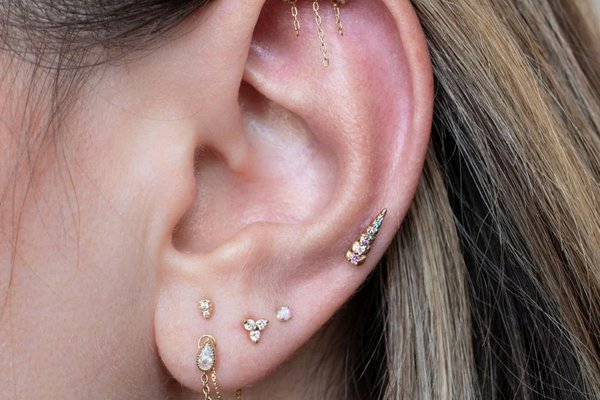
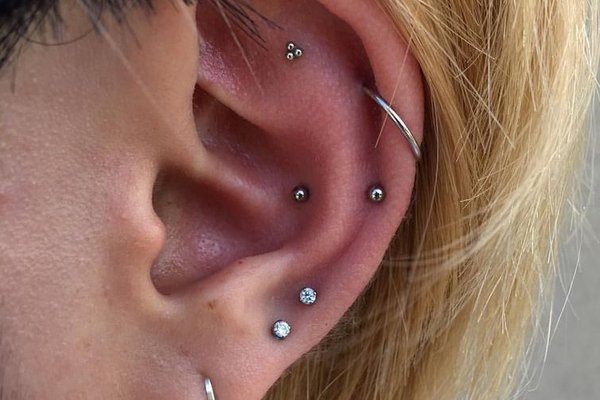
Low Helix Piercing
for Men and Women
While often showcased in feminine curated ear projects, the low helix is equally suitable for men.
Women may gravitate toward gemstones, pearls, or hoops, while men often prefer matte studs, black titanium, or industrial-inspired designs. Because it sits near the lobe, it can also complement stretched ears or plugs, adding dimension to the look.
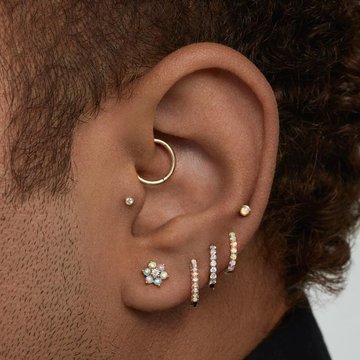
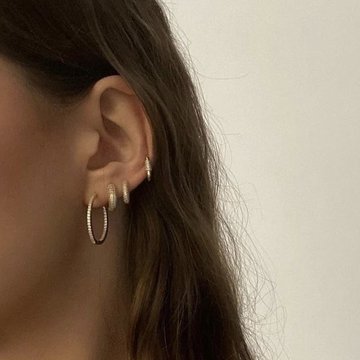
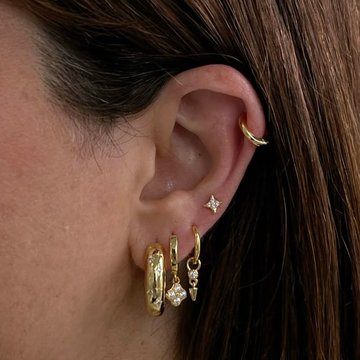
The low helix piercing strikes a balance between subtlety and style.
Its position makes it an ideal choice for those who want a cartilage piercing that feels approachable and easy to combine with existing jewelry. With proper aftercare, patience, and high-quality materials, the result is a piercing that becomes a permanent part of your personal style.
If you are ready to add this piercing to your curated ear project, visit VEAN TATTOO, where expert piercers provide sterile conditions, precise placement, and professional aftercare support.
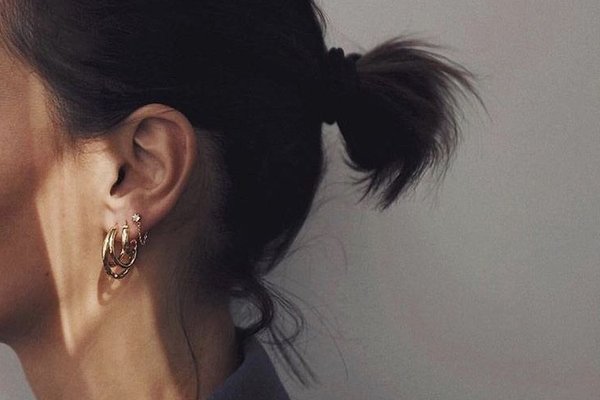
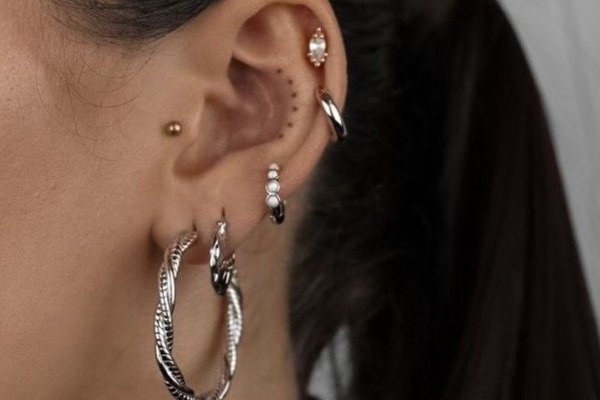


 Make a sketch in the AI VEAN TATTOO generator
Make a sketch in the AI VEAN TATTOO generator




